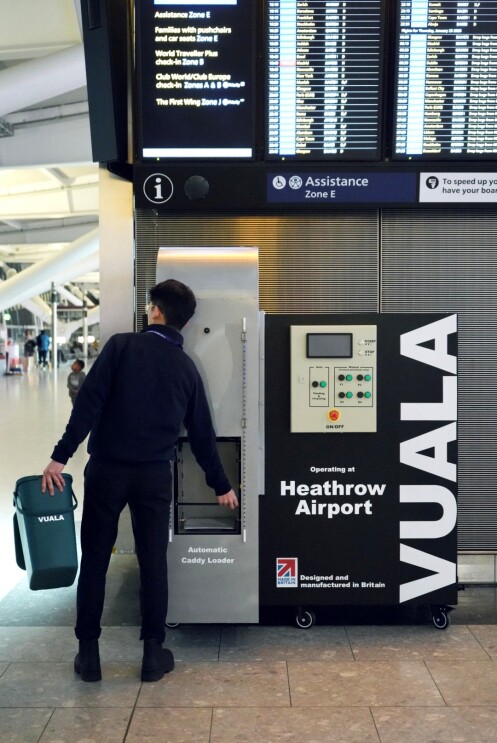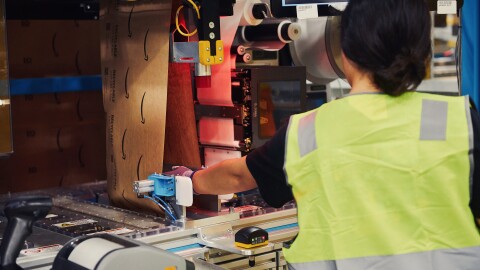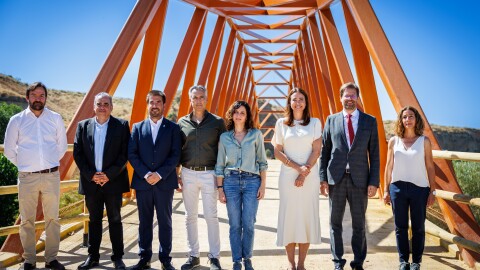Amazon has invited 11 new start-ups and scale-ups to join the ClimateTech cohort of the Amazon Sustainability Accelerator, a programme designed to accelerate the development of climate breakthrough technologies. The four-week programme combines expert-led workshops, mentoring sessions, and leadership panels. It also gives some participating companies the opportunity to run a pilot with Amazon’s European operations.
Selected from over 550 applications, these innovative companies address three crucial environmental challenges: energy efficiency, waste reduction, and water management. Among them is Cartesian, a Norwegian technology company that developed a thermal battery to transform how buildings store and use energy. Alexis Sevault, Cartesian’s CTO, said: “Being chosen is a powerful validation of our solution and that our mission matters. We are excited to take this next step toward scaling our impact."
Other participants include companies that have developed ultra-thin, flexible solar panels, an air conditioner that can reduce energy consumption by up to 90%, and a company that uses an “artificial stomach” that breaks down food waste, turning it into biogas and hydrogen for energy generation.
"What stands out about this cohort is their combination of technological innovation and practical applicability," says Olivier Pellegrini, European Director of Sustainability & Packaging Operations at Amazon. “These founders are developing technologies that have real potential for implementation within our operations and could be truly transformative at scale. Their approach connects well with Amazon's own culture of innovation and sustainability goals."
The potential for real-world implementation is significant: Amazon invested a total of €750,000 in five ongoing pilots from last year's cohort, and the company may choose to implement the successful technologies within Amazon’s European operations.
The Amazon Sustainability Accelerator launched in 2022, initially focusing on creating more sustainable consumer products before expanding into climate tech solutions. Including this year’s cohort, the programme has supported more than 70 companies across six cohorts.
The Amazon Sustainability Accelerator is supported by Founders Intelligence, part of
Accenture. "We're excited to continue our collaboration with Amazon's Sustainability Accelerator for the 2025 Climate Tech Challenge," says Livia Solustri, Strategy Lead at Founders Intelligence. "Last year's programme demonstrated the impact of connecting innovative start-ups and scale-ups with Amazon's operational expertise. We're proud to play a role in identifying and supporting companies that can drive meaningful environmental change while delivering operational efficiency at scale."
The companies joining the second edition of the ClimateTech cohort of the Amazon Sustainability Accelerator are:
1. Mhor Energy (UK) The team at Mhor has developed an innovative flow battery that stores energy in liquid form. It’s similar to a rechargeable battery but at a much larger scale and with an estimated lifespan of 20 to 25 years. It works efficiently even in high temperatures without needing cooling systems, making it particularly well-suited for facilities that are powered by solar energy and require a continuous energy supply.
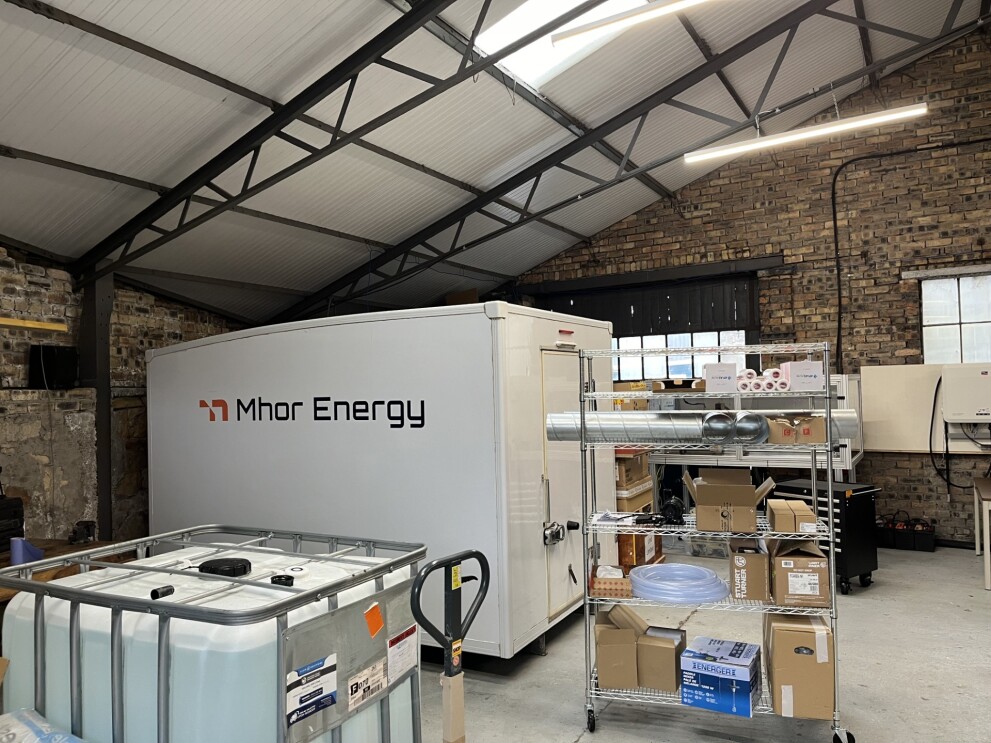
2. Cartesian (Norway) Norwegian technology company Cartesian has developed a thermal battery that stores heat or cold in materials that can change their physical state (like how ice can turn to water). The system stores energy when it is cheap and abundantand releases it during peak demand hours, reducing pressure on the power grid.
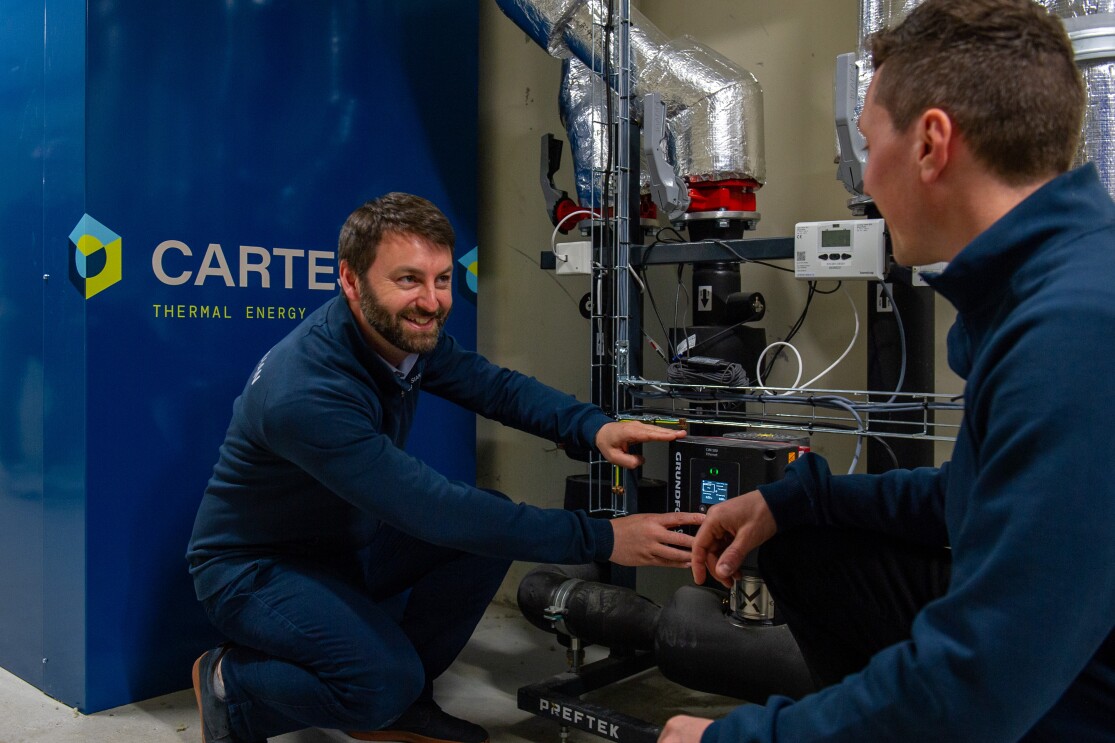
3. Over Easy Solar (Norway) Over Easy Solar developed a lightweight solar system that stands vertically instead of lying flat. Their prefabricated units weigh just 11 kg per square meter – about half the weight of conventional panels. This makes solar power possible for buildings that previously couldn't support traditional installations.

4. Active Surfaces (US) The team at Active Surfaces developed ultra-thin, flexible solar sheets. These pliable sheets use a material called perovskite, which use 10 times less material than traditional solar panels while maintaining comparable efficiency. They can be installed using adhesive, reducing installation time.

5. Omniflow (Portugal) Portuguese company Omniflow uses wind and solar power to create streetlights that use 90% less energy compared to conventional streetlights. The posts include motion sensors that automatically dim lights when no activity is detected and can support smart city applications including air quality monitoring, EV charging, and 5G connectivity.
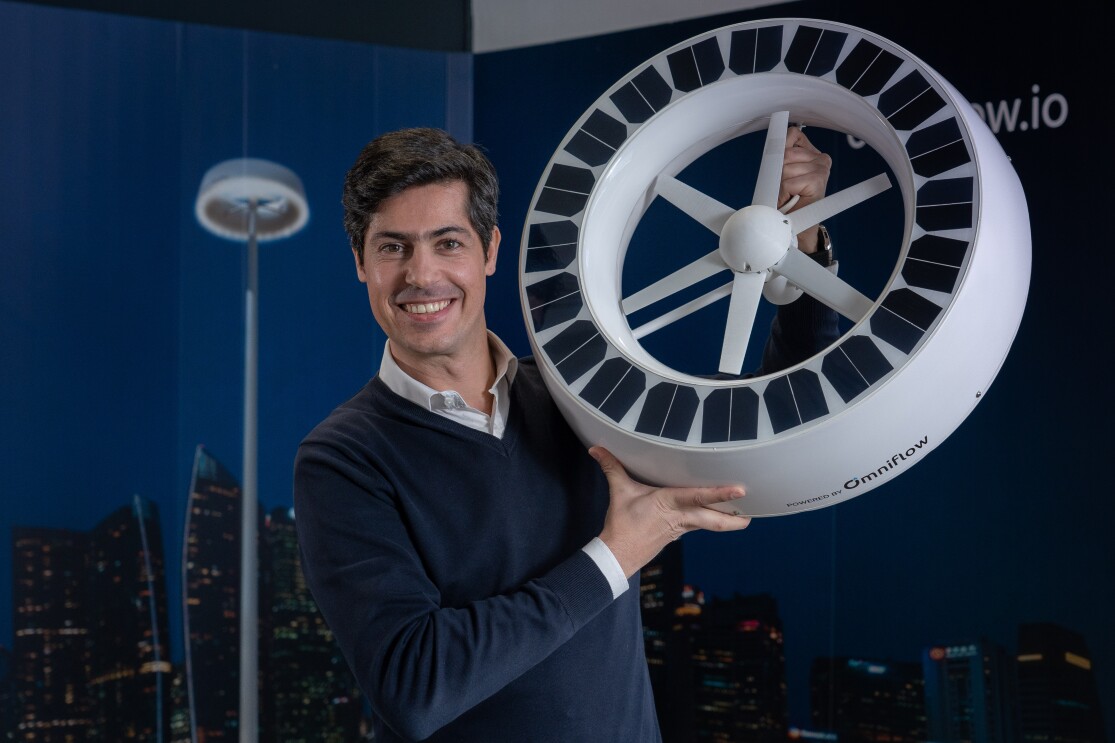
6. Blue Frontier (US) Blue Frontier's air conditioners use a liquid desiccant technology that separately manages temperature and humidity, unlike traditional air conditioners that cool and dehumidify air in a single process. This has the potential to reduce energy consumption by up to 90% and includes built-in thermal energy storage that allows the system to run for four to six hours without drawing power from the grid.
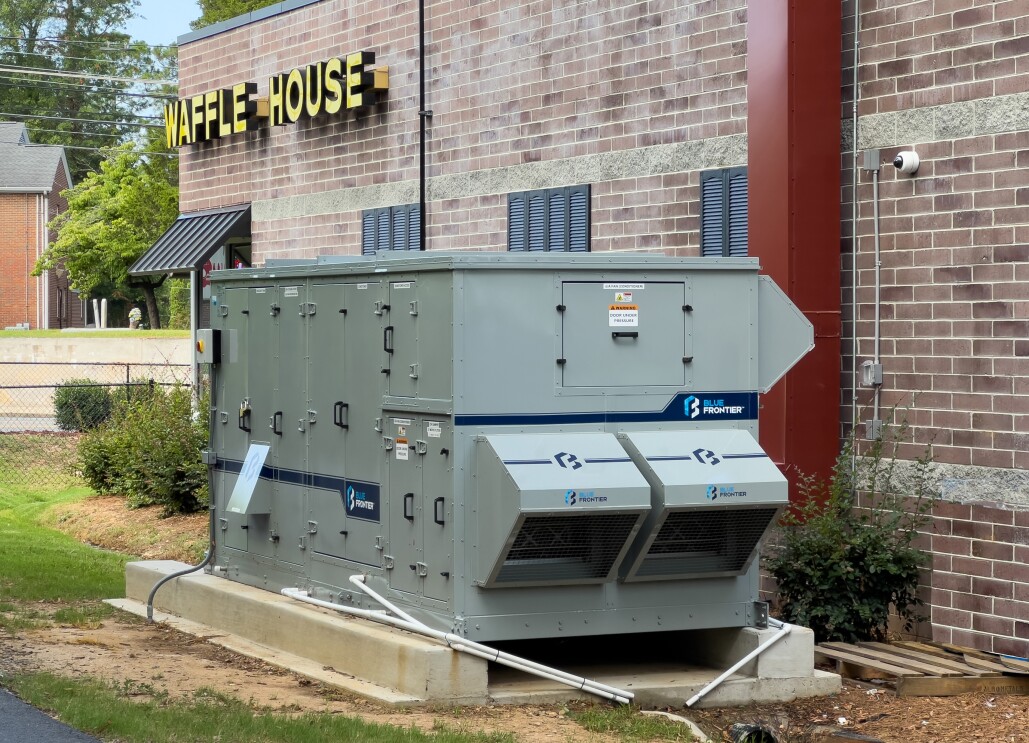
7. Shayp (Belgium) Shayp helps buildings reduce water leaks through innovative monitoring that measures 'the pulse' of pipelines. By connecting to existing water meters and using artificial intelligence, the system identifies issues that often go unnoticed. It has already saved more than 21 billion litres of water and typically helps buildings reduce their water consumption by up to 20%.
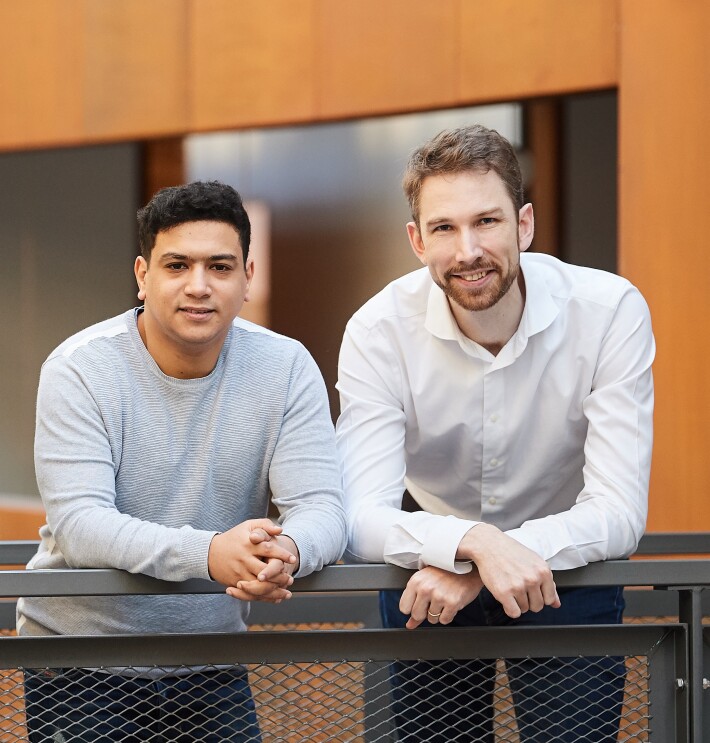
8. Solaq (Netherlands) Using a specialized absorption process, this Dutch start-up transforms atmospheric moisture into drinking water—even in areas with low humidity. Their system, housed in standard shipping containers for easy installation, can produce up to 5,000 litres of pure water per day without using harmful chemicals.
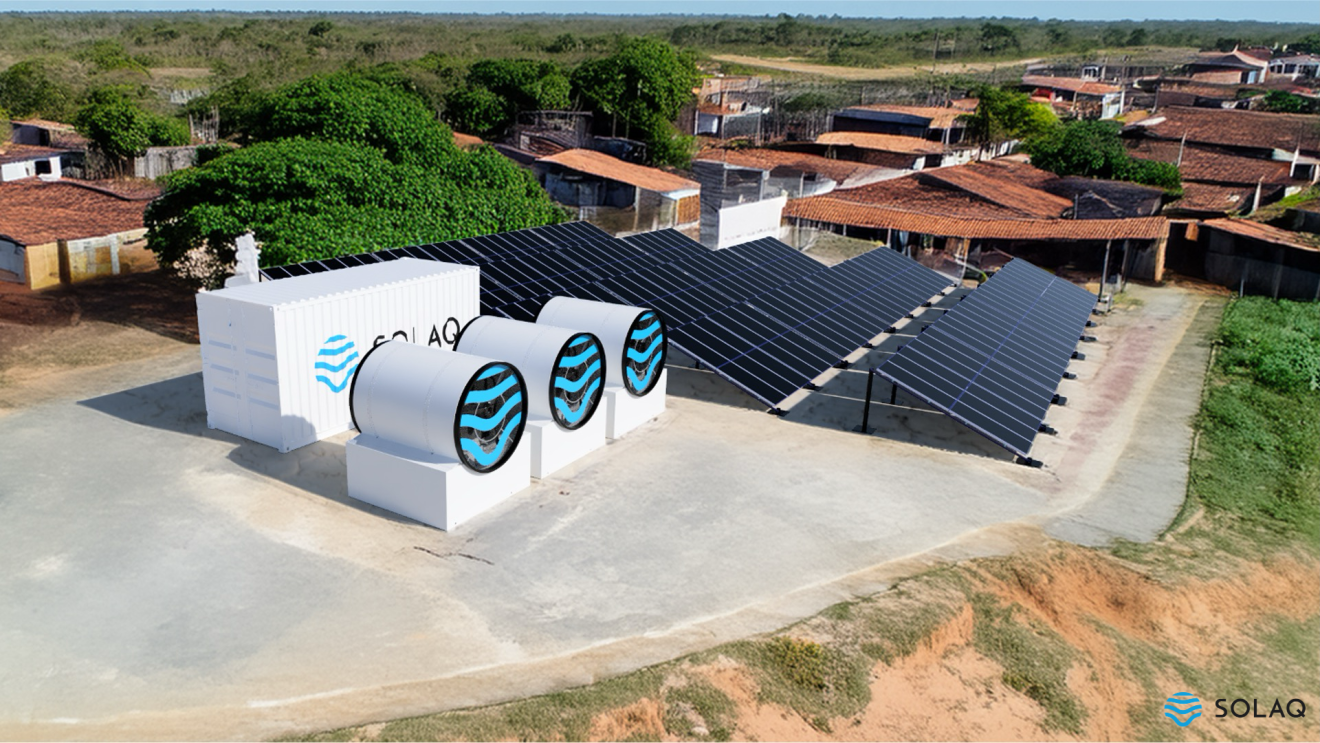
9. NANDO (Italy) NANDO transforms regular waste bins into intelligent waste monitoring stations. An app tracks small bins, sensors track large containers, and AI-powered cameras analyse waste in real-time. The system can recognize more than 70 types of waste, helping waste facility managers identify incorrect sorting and contamination immediately.
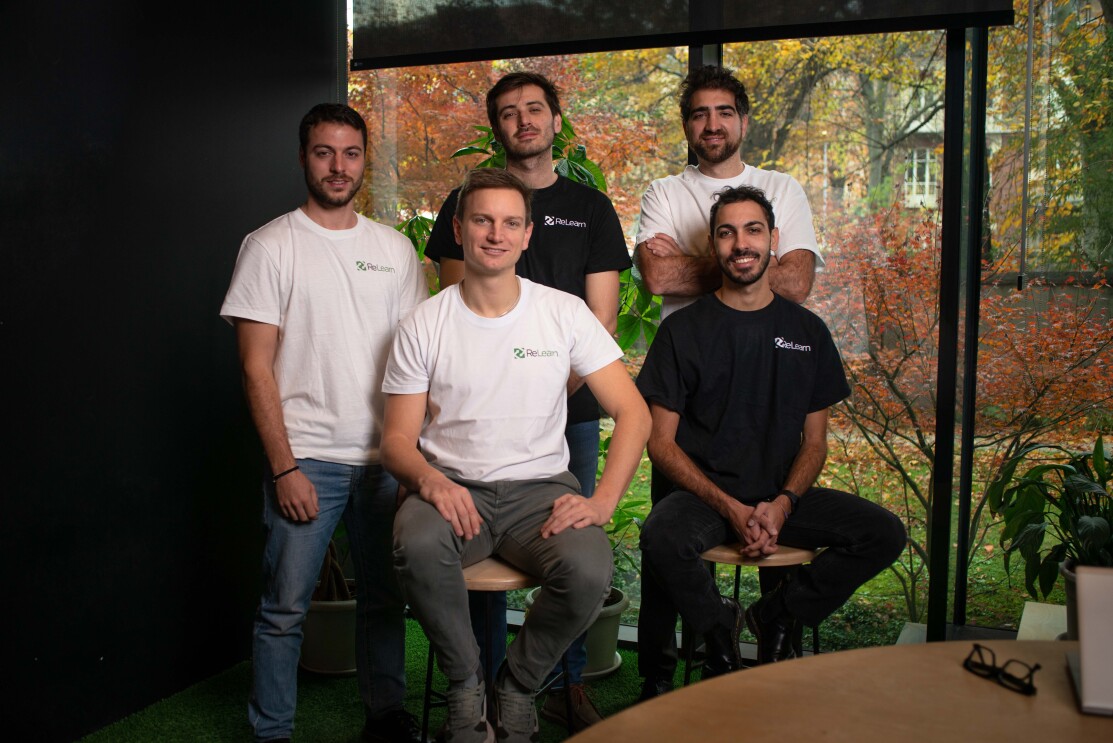
10. Greyparrot (UK) Greyparrot has developed computer vision systems that observe waste conveyor belts, identifying and categorising materials in real-time. Their AI can recognize more than 110 different types of waste, from common recyclables to complex composites.
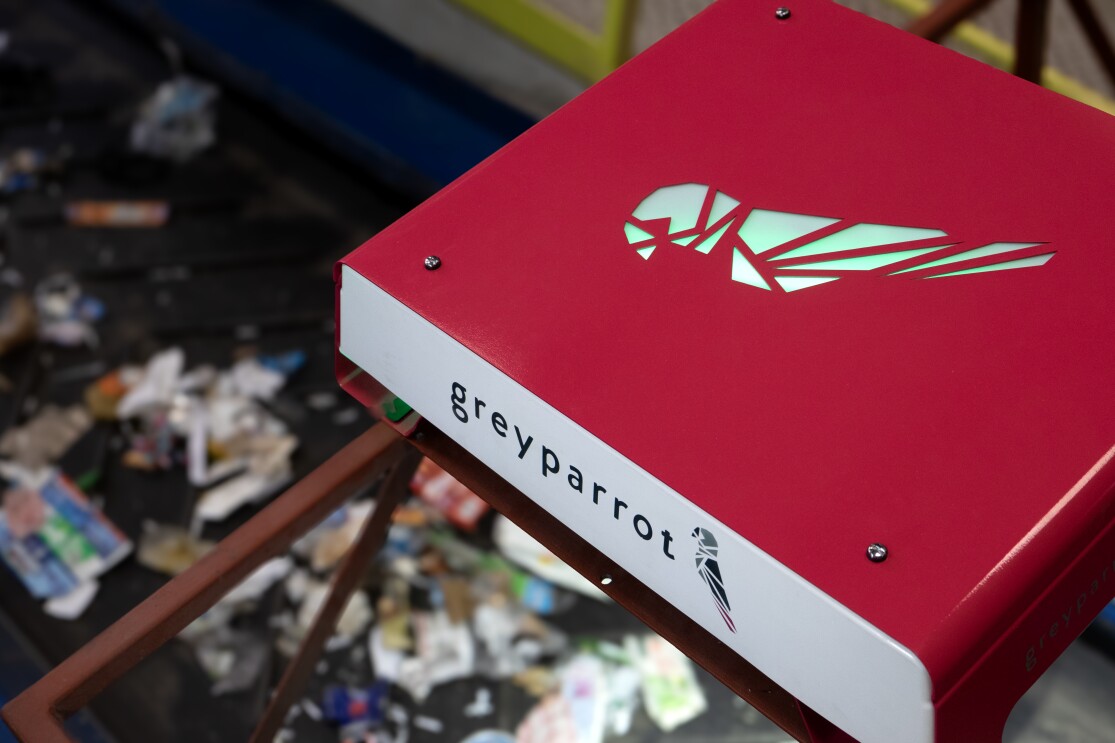
11. Vuala (UK) Vuala has developed a bio-mechanical “artificial stomach” that uses specialized microorganisms to process mixed food waste at customer locations. Their technology breaks food waste down into an odourless form that can be stored for up to a month. The processed waste then becomes raw material for biogas and hydrogen production, turning a disposal problem into a renewable energy opportunity.
